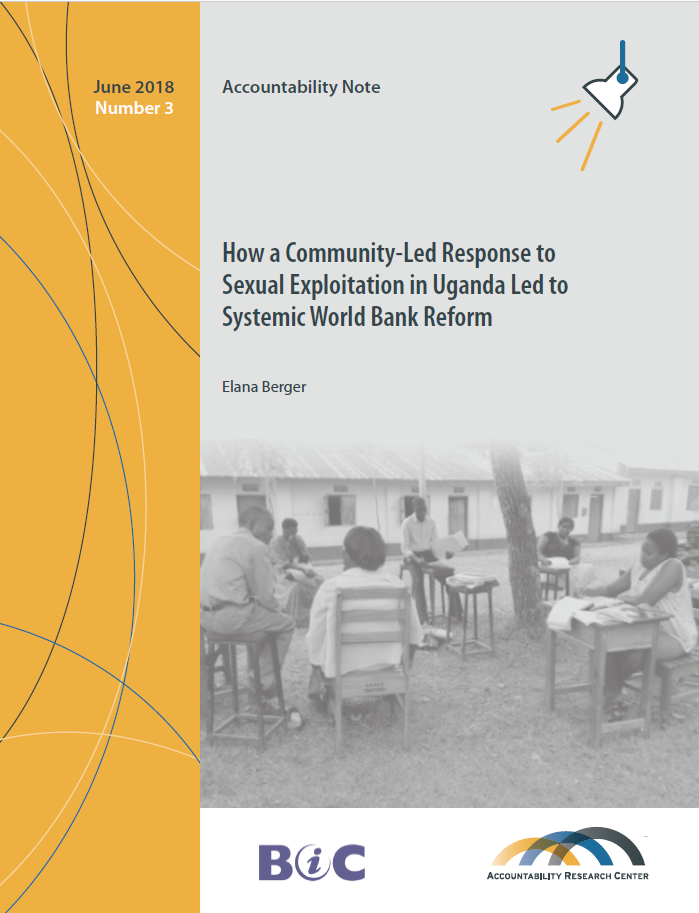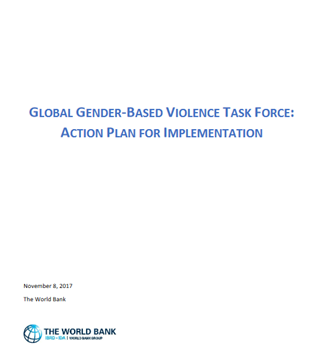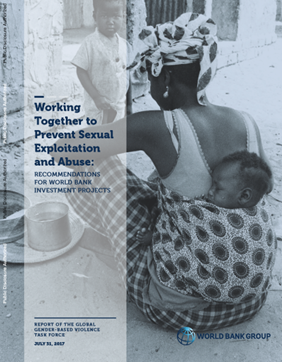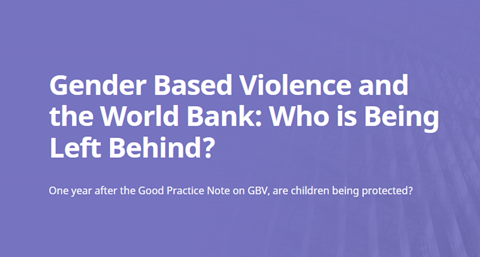
How a Community-Led Response to Sexual Exploitation in Uganda Led to Systemic World Bank Reform
Date: June 2018
Authors: Elana Berger
Publication type: Accountability Note
Published by: Accountability Research Center, Bank Information Center
How can demands for accountability and redress for harm suffered in a particular case contribute to new institutional measures to prevent future abuse? This note describes how the small Ugandan community of Bigodi, together with local, national, and international allies, mobilized to demand redress for harm done by a World Bank-funded infrastructure project, and in doing so, catalyzed changes at the World Bank aimed at preventing similar abuses in the future. The Bigodi community’s 2015 request to the World Bank’s Inspection Panel, bolstered by international media coverage, led Bank management to respond both to the specific harms and to the underlying policy failures that made them possible. The community called for the World Bank to address cases of sexual exploitation of teenage girls by construction workers employed by a Bank-funded project, the Uganda Transport Sector Development Project (TSDP). This case is significant not only because World Bank funding for the project was cancelled, affected community members received needed support services, and a corrupt government agency was purged, but because the institutional changes made may prevent similar harms across future World Bank projects. The World Bank promotes a discourse of accountability, and yet obtaining redress when problems result from World Bank projects is difficult. This is often because, rather than treating requests from communities to the Inspection Panel as an opportunity to learn lessons and improve development outcomes, World Bank management generally responds defensively and treats the Panel investigation as an adversarial process in which they seek to prove the requestors wrong. As this case demonstrates, however, when management responds constructively to Panel investigations, genuine reform can take place. For this to happen, pressure from outside the Bank is needed to provide reformers within the Bank with the opportunity to make needed policy changes both at the project level and Bank-wide. The factors that led the Bank to respond constructively with a comprehensive response in the TSDP case included: – a strong community–NGO partnership which pursued justice for victims of sexual exploitation and abuse – sustained advocacy from national and international civil society – high-profile media attention on a topic that caused embarrassment for the Bank – a strong report from an independent accountability mechanism within the World Bank (the Inspection Panel) – pressure from the Bank’s Board of Directors, in particular frequent engagement from the US government with all levels of Bank management – high-level individuals within the Bank, including President Kim, were committed to making policy changes that would reduce the risk of gender-based violence in the future. This case embodies the potential for specific instances of harm to provide the necessary catalyst for improved accountability structures and system-wide change.

Elana Berger Elana Berger is the Interim Executive Director at the Bank Information Center (BIC), an international NGO focused on influencing the World Bank and other International Financial Institutions to promote social and economic justice and ecological sustainability. She is a human rights lawyer with significant experience working on human rights at the international level. Prior to coming to BIC, she lived in Thailand working for Burma Partnership where she helped local civil society groups report on human rights violations committed by the Burmese military. Elana received her Juris Doctor from Columbia University School of Law and a holds a B.A. in Political Science and History from the University of Maryland.



